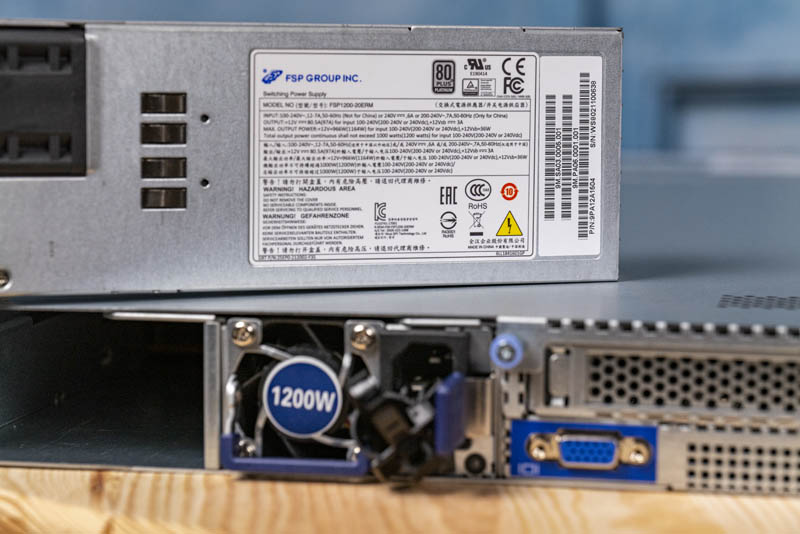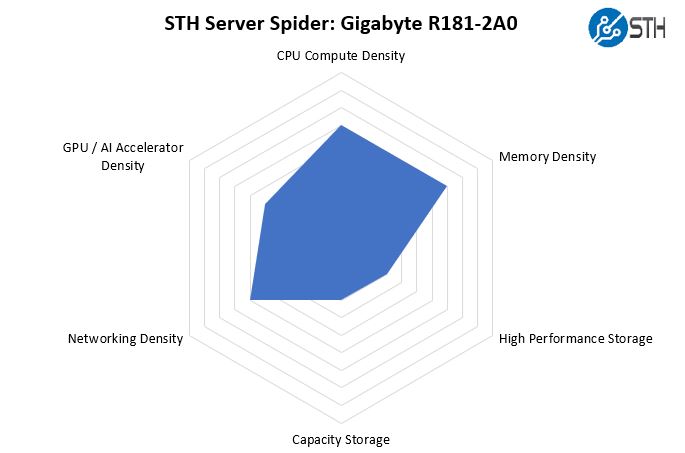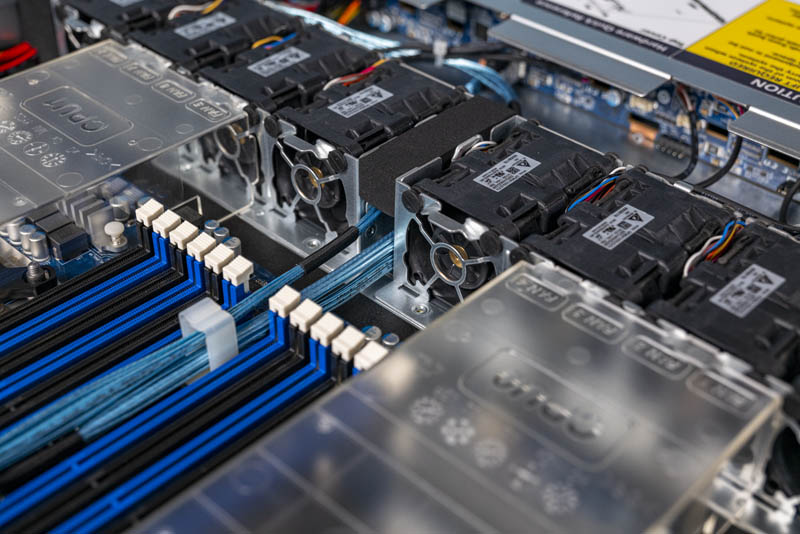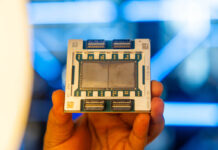Gigabyte R181-2A0 Power Consumption
Our Gigabyte R181-2A0 has redundant 80Plus Platinum 1.2kW power supplies from FSP Group. These are very high-efficiency power supplies meant to deliver power with low loss.

With that, and the Intel Xeon Gold 6248R processors, we saw relatively modest power consumption figures for this class of machine:
- Idle: 0.18kW
- STH 70% CPU Load: 0.61kW
- 100% Load: 0.73kW
- Maximum Recorded: 0.79kW
The Gigabyte R181-2A0 uses slightly more power than some 2U solutions we have tested just due to the smaller fan sizes. Still, this is a good result and in-line with what we would expect from a 1U server in this class. Of course, power consumption will vary based on the exact configuration.
Note these results were taken using a 208V Schneider Electric / APC PDU at 17.3C and 71% RH. Our testing window shown here had a +/- 0.3C and +/- 2% RH variance.
STH Server Spider: Gigabyte R181-2A0
In the second half of 2018, we introduced the STH Server Spider as a quick reference to where a server system’s aptitude lies. Our goal is to start giving a quick visual depiction of the types of parameters that a server is targeted at.

This server is designed to deliver a lot of CPU and memory along with a solid set of expansion capabilities. To that end, it is not designed for an array of high-speed NVMe or 3.5″ storage. Gigabyte has other models to address those segments.
Final Words
Overall, the mission of the Gigabyte R181-2A0 is clear from its features. This is an excellent platform for the 2nd Gen Intel Xeon Scalable Refresh parts. The dual UPI link design matches the capabilities of the new chips. Likewise, the heavy-duty cooling solution along with support for Optane DCPMM configurations matches the “refresh” SKUs well.

The server did not have much in the way of NVMe connectivity. That seems to be by design as Gigabyte has the -N20 and -NA0 variants with 2 and 10 NVMe hot-swap bays respectively. We would have liked to have seen internal M.2 slots, for boot devices but there are SATADOM headers for boot duties.
Overall, the fit, finish, and quality of Gigabyte servers has gone up in recent generations. We tried focusing on a few examples of these in this review since they have a major impact on serviceability. They also further close the hardware gap between Gigabyte’s cost-optimized platform and one from a traditional player. The management solution built on industry-standard BMC firmware is much more responsive than previous generations as well.
Overall, if you are looking for a 1U 2nd Gen Xeon Scalable Refresh platform with SATA drive connectivity and a large amount of I/O, the Gigabyte R181-2A0 is squarely designed for your requirements.




I would LOVE to see the whitebox OEM version of the hardware setup guide that is pasted inside this chassis.
The mis-spellings, sentence structure & syntax, and translation (from whatever to English) errors could be hillarious reading!
Sleepy, your mistaken here. HPe take these systems and market them as their own. The quality and translation is brilliant